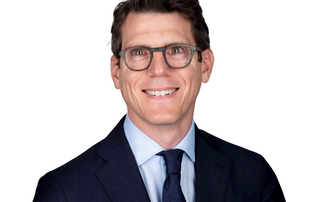With Stuart Kirk, Head of Deutsche Asset Management's new Global Research Institute: The rise of passive is a phenomenon. Even better, its success is widely considered a good thing, with index vehicles such as exchange traded funds giving investors more choice and value for money. Recently, however, a small and vocal backlash has begun.
Equity index trackers are accused of undermining free markets and the efficient allocation of capital. One analyst report even called passive "worse for society than Marxism".
Luckily, these critics of passive are mistaken. The argument that index funds have eroded price discovery in equity markets has its logic back to front: passive is the result of changes in the investment environment, not the other way round. A narrowing in prices came first. Over the past two decades the dispersion in total shareholder returns among companies has fallen, making it harder for professional active managers to generate alpha. Passive is merely a rational response to this trend. As the performance between low and high quality stocks narrowed, investors realised they might as well own the lot.
Which is why the strongest inflows into passive funds have tended to be in asset classes where active has performed worse than passive. For example US large cap equity assets have been 70 per cent penetrated by passive mandates as active managers have struggled to produce alpha. Meanwhile, global, emerging markets, and asset allocation strategies have been more immune to passive as active funds have maintained their edge.
So lower performance dispersion gave rise to the passive industry - the latter did not distort the former, or much else for that matter. Nor does accusing passive of affecting prices make sense from first principles either. Index funds have to mirror a benchmark and therefore can only move a market up and down. It is always the marginal buyer or seller who sets the price so the efficient allocation of capital between companies is determined by active investors. This is equally true if index funds account for 99.9 per cent of the market.
Consider an equity market with two stocks, Apple and Caterpillar, both trading at $100 per share. There are two tiny active managers and one gigantic passive manager, each with shares in both companies. What happens if money flows into passive from an outside source? The two active funds are the only potential sellers of shares and their eyes pop out when they see the size of the bids.
They instantly reassess what they think Apple and Caterpillar are worth and given the size of the bids on the table the valuations in their heads no-doubt rise. But the levels the two stocks eventually reach are the prices at which the active managers are willing to trade with each other, based on their different views of the relative prospects of Apple and Caterpillar. Only active managers do the analysis to be able to make this relative judgement.
And when such levels are reached, the active managers are indifferent to whom they sell - and hence the passive fund receives its shares. Meanwhile, the index is made up of the holdings and prices of the stocks in the three managers' portfolios, so by definition the passive fund keeps a benchmark weighting. It is a closed system. The passive manager, no matter how big it grows versus the amount of active money, is merely an observer.
Sure, in the example above, passive money has moved the index to a higher level. But it would have leaped if the active managers received the large inflow instead. Hot money has spurred bull markets since the dawn of investing. It is not the fault of the passive or active funds if investors are potentially willing to chase prices higher. In reality, though, inflows into passive have largely been at the expense of active funds so the overall index effect is muted. But in neither scenario is relative price discovery effected.
So passive does not distort the efficient allocation of capital. That Caterpillar's forward price to earnings ratio in the real world is 40 per cent higher than Apple's is not necessarily correct. But the premium or discount between the two will always be due to active participants in the market. Sorry Marxists.
Past performance is not a reliable indicator of future performance. The views and information discussed herein are as of the date of publication, are subject to change and may not reflect current views. The views expressed represent an assessment of market conditions at a specific point in time, are opinions only and should not be relied upon as investment advice regarding a particular investment or markets in general. Such information does not constitute a recommendation to buy or sell specific securities or investment vehicles. The information contained herein has been derived from sources believed to be reliable and accurate at the time of compilation, but no representation or warranty (express or implied) is made as to the accuracy or completeness of any of this information.
In the UK, this document is only made available to professional clients and eligible counterparties as defined by the Financial Conduct Authority ("FCA"). Issued and approved by Deutsche Asset Management (UK) Limited, Winchester House, 1 Great Winchester Street, London EC2N 2DB, authorised and regulated by the Financial Conduct Authority (‘FCA'). Deutsche Asset Management is a trading name of Deutsche Asset Management (UK) Limited.











